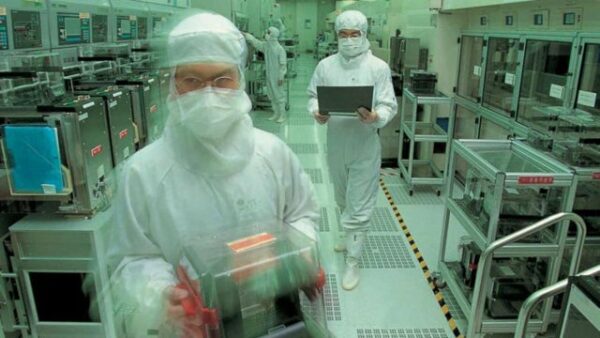China’s semiconductor industry has been rocked by the mass resignation of American workers after new restrictions were announced by US President Joe Biden’s administration.The export controls, which the US said was needed to “protect US national security and foreign policy interests”, restrict the ability of China to “purchase and manufacture certain high-end chips used in military applications”.The restrictions ban the export of US semiconductor equipment that cannot be provided by any foreign competitor. There’s also a licence requirement for the export of American tools or components to China-based fabrication plants.
And critically, any US citizen or entity is required to seek permission from the US Department of Commerce before providing support to Chinese plants.Anyone who violates the sanctions could face arrest by the US Department of JusticeThe controls caused the “complete collapse” of China’s semiconductor industry overnight, according to one expert.This is what annihilation looks like: China’s semiconductor manufacturing industry was reduced to zero overnight,” an entrepreneur who tweets under the name Lidang wrote in a thread translated by Jordan Schneider, a senior analyst at Rhodium Group.
Lots of people don’t know what happened yesterday,” Lidang explainedTo put it simply, Biden has forced all Americans working in China to pick between quitting their jobs and losing American citizenshipEvery American executive and engineer working in China’s semiconductor manufacturing industry resigned yesterday, paralysing Chinese manufacturing overnight.One round of sanctions from Biden did more damage than all four years of performative sanctioning under [former US president Donald] Trump.”
The Financial Times reported that US companies Lam Research, Applied Materials and KLA Corporation had taken immediate measures to comply with the new rules.Lam Research has started pulling workers out from China-based memory chip producer Yangtze Memory Technologies Corp and told its employees to “stay away” from Chinese fabrication companies “for now”.In a letter, Dutch multinational ASML wrote the new regulations prohibited support to certain fabrication plants in China by US persons.
As a result, ASML US employees – including US citizens, green card holders and foreign nationals who live in the US – are prohibited from providing certain services to advanced [fabrication plants] in China.Effective at midnight tonight, ASML US employees must refrain – either directly or indirectly – from servicing, shipping or providing support to any customers in China until further notice.”A spokesman for the China Semiconductor Industry Association said the “unilateral measure” would harm the further global supply chain of the semiconductor industry.
More importantly it will create an atmosphere of uncertainty, which will negatively affect the trust, goodwill, and spirit of co-operation that the players of the global semiconductor industry have carefully cultivated over the past decades,” he said.Chinese Foreign Affairs Ministry spokeswoman Mao Ning accused the US of abusing export control measures to wantonly block and hobble Chinese enterprises”.Such practice runs counter to the principle of fair competition and international trade rules,” she said.
It will not only harm Chinese companies’ legitimate rights and interests, but also hurt the interests of US companies.”The move by the US is a major escalation of tensions between Beijing and Washington.Abishur Prakash, co-founder of the Centre for Innovating the Future, told CNBC it was a major shift.There is no going back to the way things were,” he said.“With the latest action, the chasm between the US and China has now expanded to the point of no return.Share prices of Chinese tech giants and companies with facilities in China plunged after the US announcement.
The US said if China was allowed to manufacture advanced semiconductors, Beijing would be able to produce advanced military systems including weapons of mass destruction, improve the speed and accuracy of its military decision making, planning and logistics, as well as of its autonomous military systems and commit human rights abusesUnder Secretary of Commerce for Industry and Security Alan Estevez said: “The threat environment is always changing, and we are updating our policies today to make sure we’re addressing the challenges posed by the [People’s Republic of China] while we continue our outreach and co-ordination with allies and partners.”
The US is trying to revitalise its semiconductor manufacturing capabilities and recently passed the Chips and Science Act in a bid to reduce reliance on Taiwanese-made chipsMicron recently announced plans to open a $160 billion chip manufacturing plant in New York.Semiconductors are a critical component in a range of modern appliances and are also used in artificial intelligence and for advanced military programs.





